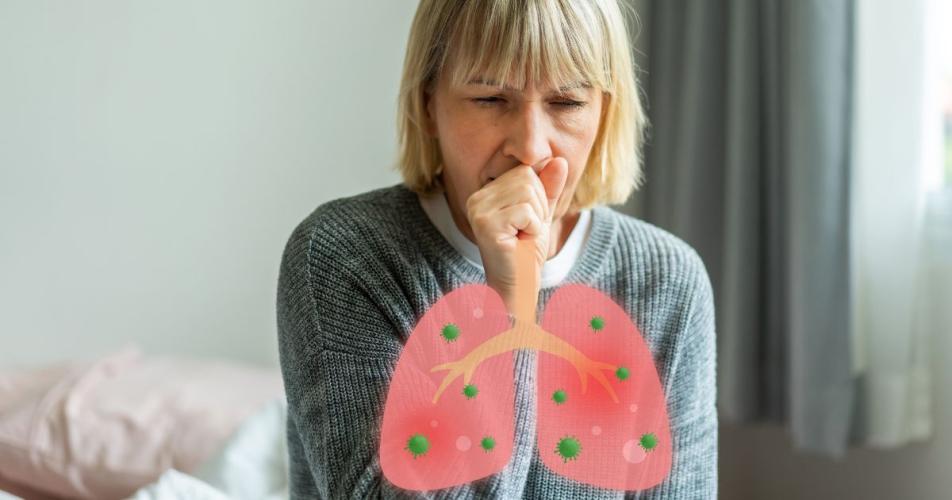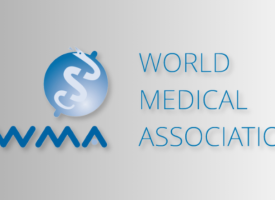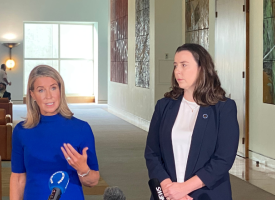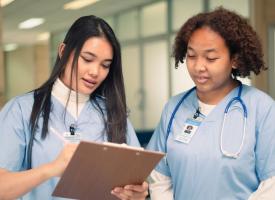The vulnerable now protected against severe respiratory virus
The Queensland Government's decision to roll out a free RSV immunisation program for infants was welcome news to wake up to on Monday morning, AMA Queensland President Dr Maria Boulton told ABC radio. "We always welcome any vaccine being made more accessible, particularly at the moment where we know that people are having to decide between buying a medication or buying food," she said.

Transcript: AMA Queensland President, Dr Maria Boulton, ABC Radio Brisbane, Drive with Kelly Higgins-Devine, Monday 25 March 2024
Subjects: Protection against RSV
KELLY HIGGINS-DEVINE: This morning on Breakfast with Craig and Loretta, you heard that babies and children up to the age of five will be able to receive a free vaccination for RSV, which is a particularly nasty respiratory virus. Craig and Loretta spoke with Dr Paul Griffin, an infectious diseases expert at the Mater Hospital.
DR PAUL GRIFFIN: Last year we saw around 30,000 cases and about a third of those were in children under two. They’re the sort of children that will be protected by this monoclonal antibody that works a bit like a vaccine that will protect them. It will keep lots of kids out of hospitals, stop lots of kids getting complications like wheezing and other things. They all have a significant cost on our healthcare system, and it’s estimated that cost may be over $40 million so, if anything, this is going to save us money and improve the health of those young children.
KELLY HIGGINS-DEVINE: Well, there are also concerns for adults over the age of 60, especially those with pre-existing conditions such as diabetes, compromised immune systems, cardiac conditions, and the like. Dr Maria Boulton is a GP and President of the Australian Medical Association of Queensland. Afternoon.
DR MARIA BOULTON: Good afternoon, Kelly.
KELLY HIGGINS-DEVINE: Can you first tell us, what is RSV?
DR MARIA BOULTON: RSV is a viral illness that tends to do the rounds mainly around winter, but you can get it at other times. It can cause mild symptoms such as just your usual cold symptoms, but it can also cause severe disease. In children it can cause bronchiolitis, bronchitis and pneumonia, and in people over the age of 65 or people who are suffering from chronic illnesses, it can also cause more severe forms of the disease. And it is those age groups that worry us - the very young and the older people.
KELLY HIGGINS-DEVINE: Well, we were hearing this morning that there's going to be a free vaccine made available for young children, for babies. And that's great because, you know, you definitely want to take care of your younger population, make sure they're all right. But for those adults aged 60 and over, what sort of complications are we seeing in them?
DR MARIA BOULTON: We always welcome any vaccine being made more accessible, particularly at the moment where we know that people are having to decide between buying a medication or buying food. So, it was really welcome news that we woke up to this morning. But when you're speaking about people who are over the age of 65, there is an increased risk of severe RSV. There is a risk that they'll end up in hospital, and currently, there's 19 people over the age of 65 in Queensland hospitals because of RSV, and we're not even into winter yet.
The other thing is that it is quite debilitating, particularly for people who may have other chronic illnesses such as lung disease, diabetes, who may be immunosuppressed. And particularly, I'm not sure if there are grandparents listening out there, but these things tend to be very present in children. As a grandparent, you are susceptible of catching something from your grandkids. You want to hug them and kiss them, et cetera, but they also carry disease, so it just puts you at risk as well.
KELLY HIGGINS-DEVINE: So, be careful if the child's coughing and spluttering and that kind of thing?
DR MARIA BOULTON: Oh, look, correct. I'm very fortunate that my in-laws look after my children one day a week, but thankfully we're able to not have to take them over if they're sick. We're very careful with them because we just don't want them to catch something that the kids may have brought home. And like with anything, if you're sick, stay home of course, and that applies to everyone.
KELLY HIGGINS-DEVINE: Now, with the vaccine, what does it help with it? I'm imagining that it won't stop you from getting it, but will it help with the symptoms?
DR MARIA BOULTON: It will. So, the vaccine has been shown to reduce your risk of severe disease by 83 per cent and reduce the risk of you ending up in hospital by 94 per cent. So, it is very effective, and it seems to stay around in your system for about 10 months. And like every vaccine, it's very effective, there seems to be very few issues with it. What people have been reporting is the usual vaccine side effects, so malaise, muscle aches, headaches, but not at a greater risk than placebo. So, it's a safe vaccine. The only issue is going to be cost because it is a private vaccine. So, it is something that we will push the governments to fund because I hear it's going to be a couple of hundred dollars at least.
KELLY HIGGINS-DEVINE: Per vaccination?
DR MARIA BOULTON: Per vaccine.
KELLY HIGGINS-DEVINE: People are probably thinking – oh, 19 people, it's not a lot. But at this stage of the year when it's only March, we're not even in peak autumn season, let alone winter, that’s a few.
DR MARIA BOULTON: That's right, and ATAGI has come out with some recommendations for the vaccine. So certainly, if you're over the age of 60, you can consider having the vaccine. They are particularly concerned for people who are over the age of 75 because they are more likely to have complications from RSV. So, they're definitely recommending that people over the age of 75 do consider getting a script for it. Also, Aboriginal and Torres Strait Islander people over the age of 60 and anyone who has any chronic issues such as lung disease, diabetes, who are immunosuppressed over the age of 60 should consider having a conversation with their GP and getting a script.
KELLY HIGGINS-DEVINE: Is this year's bout of RSV just more, I don't know, stronger than previous years? I know that Kenz has had a bit of it, and she's got a cough that's lasted two weeks.
DR MARIA BOULTON: Oh, no. It’s awful when you have a sick child.
KELLY HIGGINS-DEVINE: But that seems to be what people have. I mean, she's 21, she’s luckily able to take care of herself, but you know what I mean? It's still it's a long time to have a cough. And I'm hearing other people saying the same thing, that when they had it, that it did not want to let go.
DR MARIA BOULTON: And it seems that it's going to be a significant season, already we're seeing double the number of people with RSV. There are other things doing the rounds. Mycoplasma which causes pneumonia, also COVID is still doing the rounds, and we're now waiting for the flu season to begin. So, it seems that it will be another significant season but there are vaccines out there. There's the flu vaccine, which has also been funded by the State Government this year, which is great news. There's the COVID vaccines as well. Also, the other disease that I forgot to mention was whooping cough. This is a really important one, particularly if you're pregnant or if you're over the age of 65 and have chronic conditions. There is a vaccine for whooping cough, but you just need to check that you've had it within the last five years or that you've had it within that pregnancy, because every pregnancy you need one.
KELLY HIGGINS-DEVINE: All right. So go and check in with your own GP and see what they say. And stay safe, people, as much as you can. Dr Maria Boulton, thank you.
DR MARIA BOULTON: Thank you.



